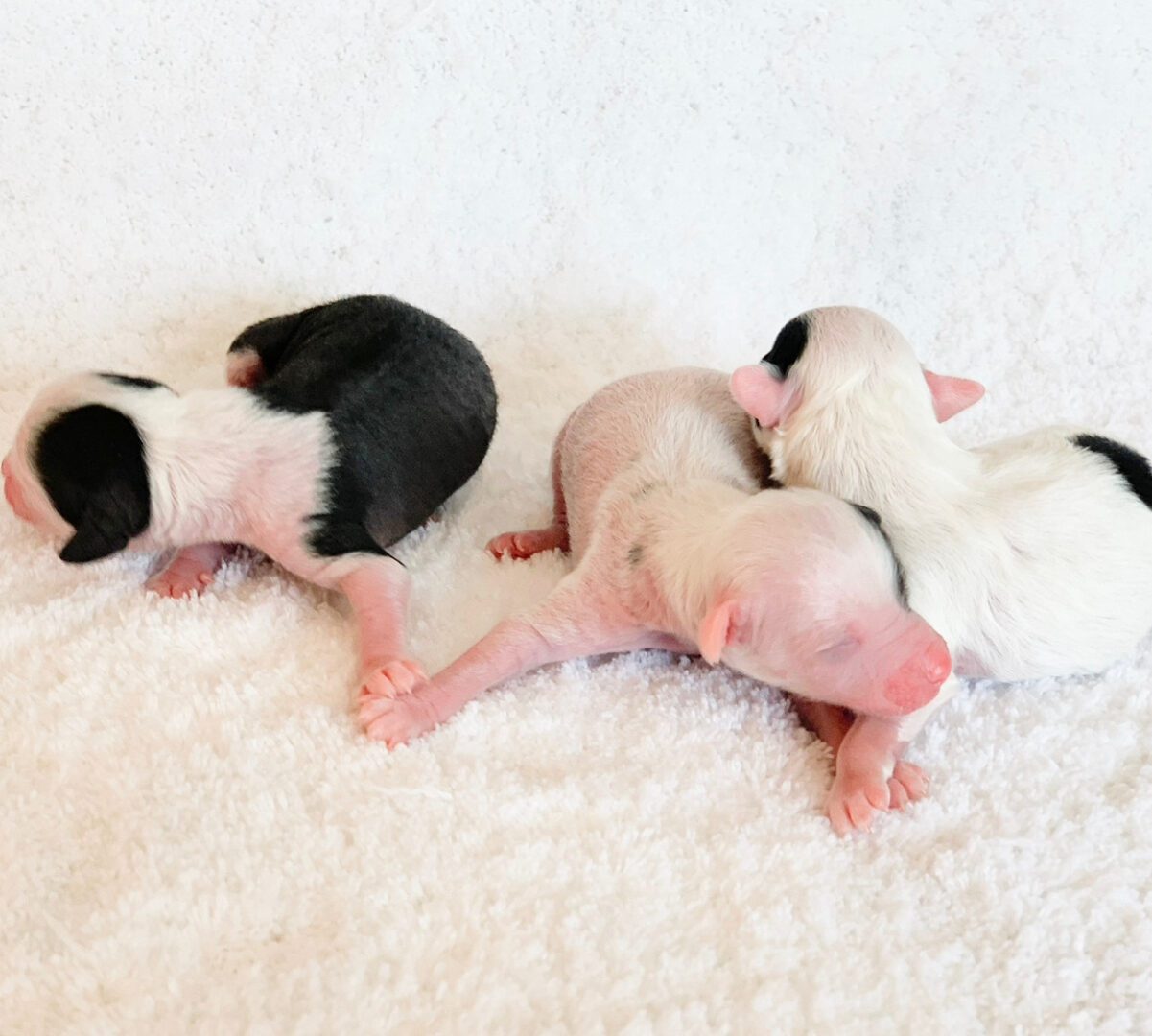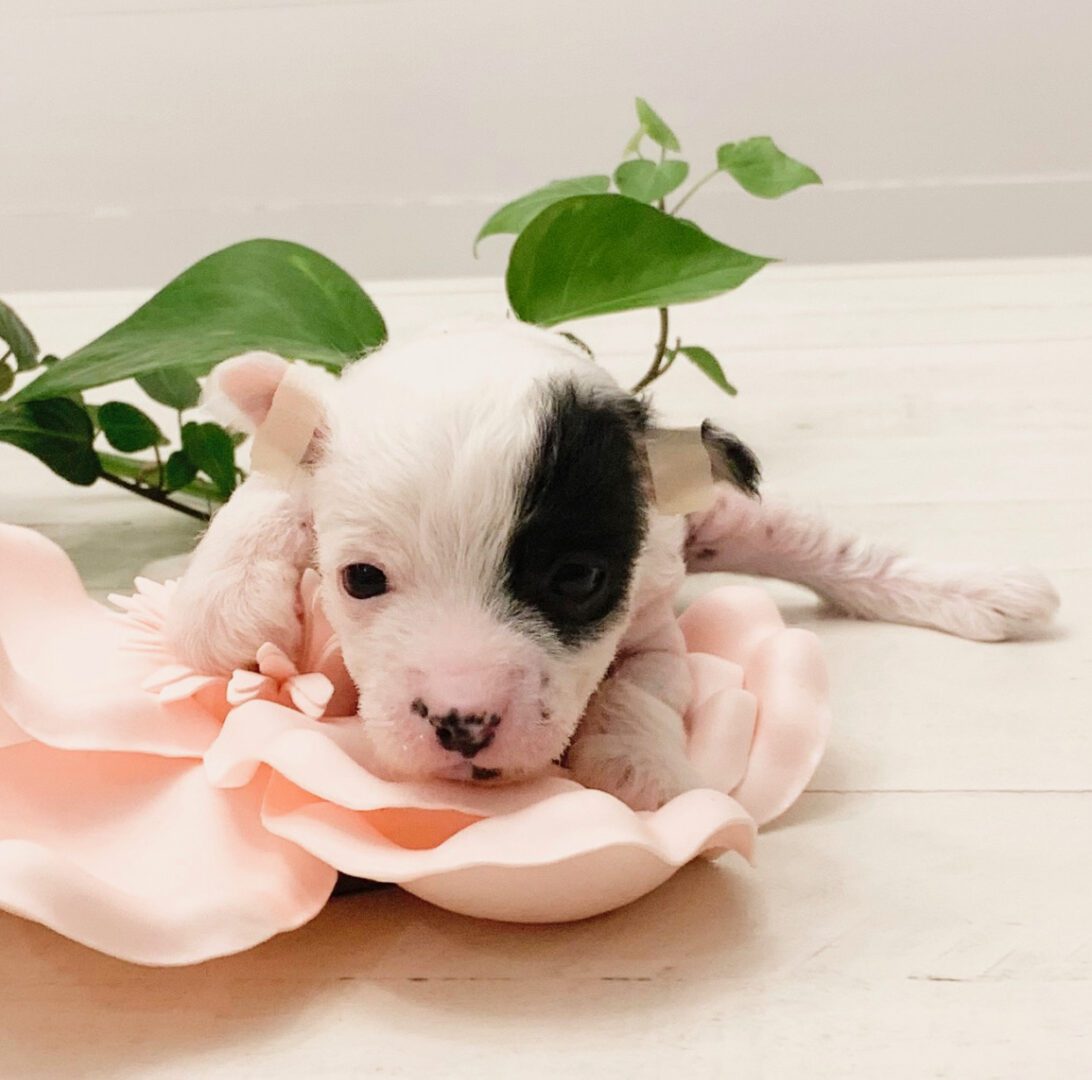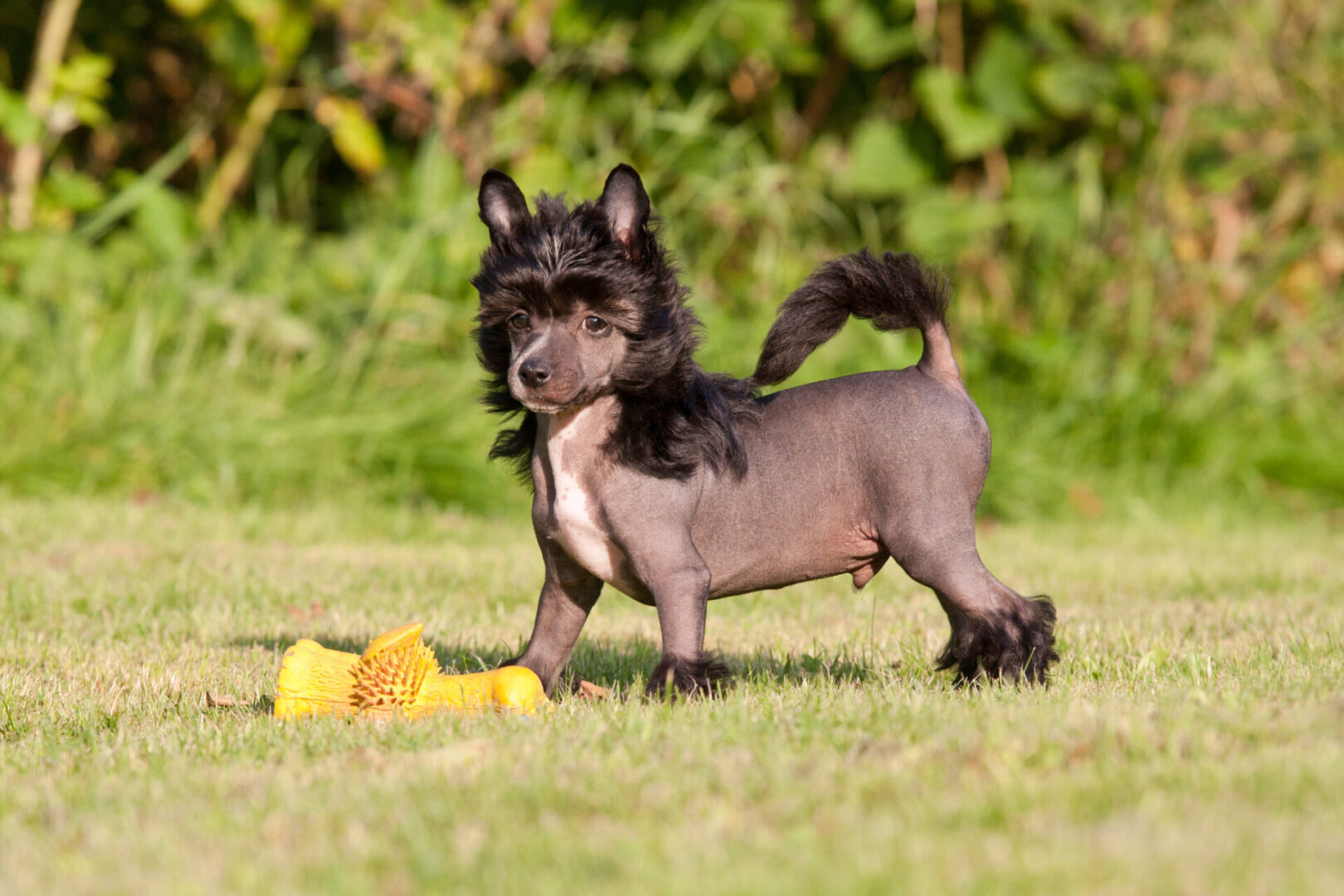Puppy Development
Newborn to two Weeks Old

Two - Four Weeks Old

At this age, the majority of there time is still spent eating and sleeping. Although, when puppies are awake, they begin to socialize and learn how to use their legs by trying to stand, sit and even walk during these two weeks. It’s rather fun to watch them during this stage because they are still very wobbly and fall a lot like they are tipsy, it's quite cute if you ask me. At this development point, they are still 100% dependent on the mom's milk to keep them alive but at 4 weeks of age, we introduce them to gruel/canned food to begin the weaning process.
Four to Six Weeks Old

Six to Eight Weeks Old

This age is where the fun begins. Most puppies at this age become brave and comfortable with typical household noises. They can stand, walk, run, & better yet, even growl and bark. They love to play with toys, kids, wrestle each other, give kisses, and act as your very own shadow. At this point is when they want to explore outside of the whelping box. Once this happens, we start putting them in a playpen for up to 4-6 hrs a day to play with each other and my five children. At nap time and nighttime, they are placed back into their nursery kennel to sleep. Some puppies may still be very shy towards new situations just as human children can be and that’s normal. It’s important to have patience and keep trying. Eventually, they will come around. Puppies start to cut teeth at about five weeks of age; we give them hooves to practice chewing on. By six weeks our puppies usually have a full set of teeth and are eating dry kibble. By eight weeks of age, they are no longer nursing. They are entirely on a dry kibble diet (PawTree), and ready to go there forever homes.
